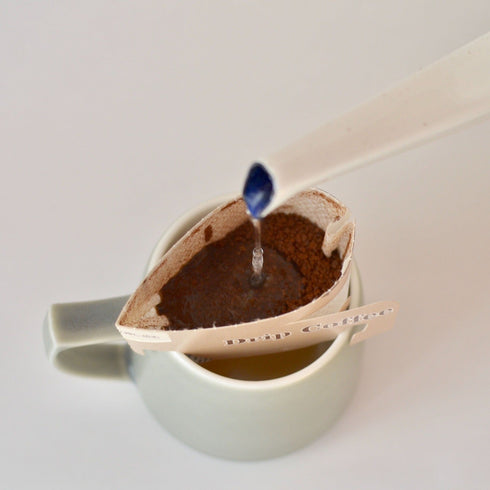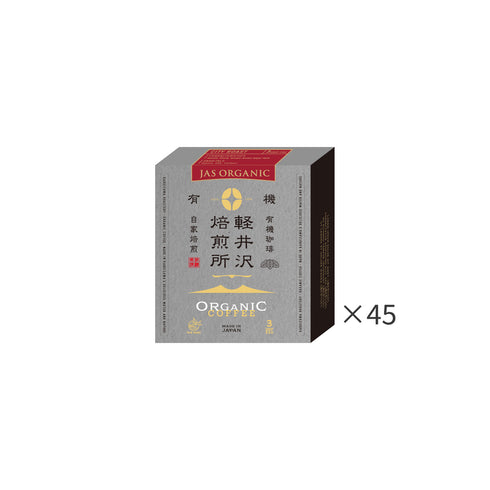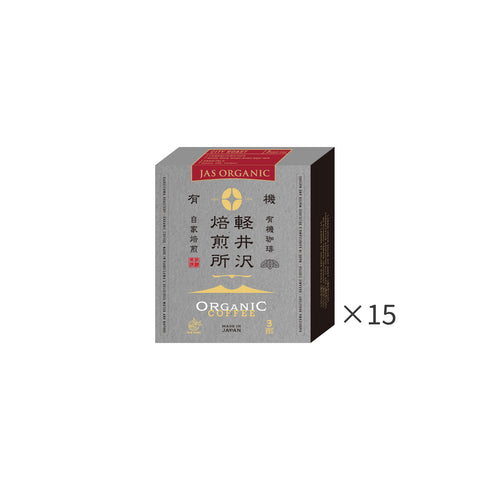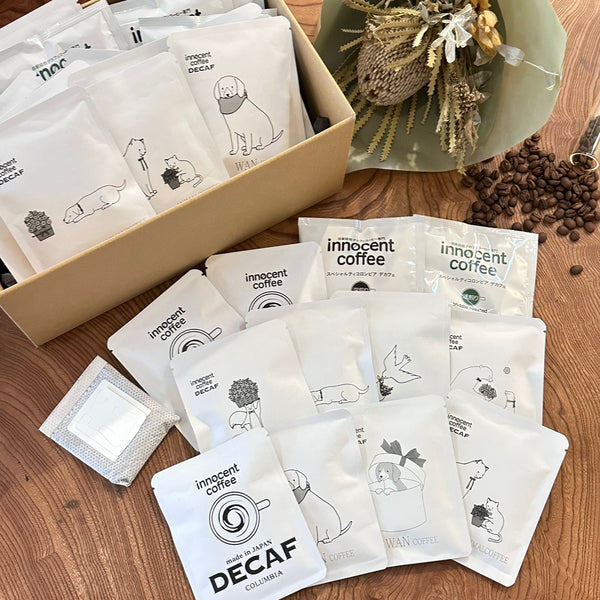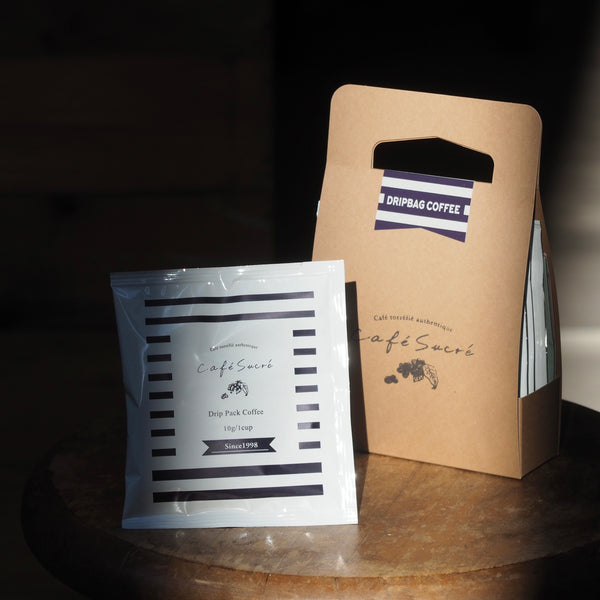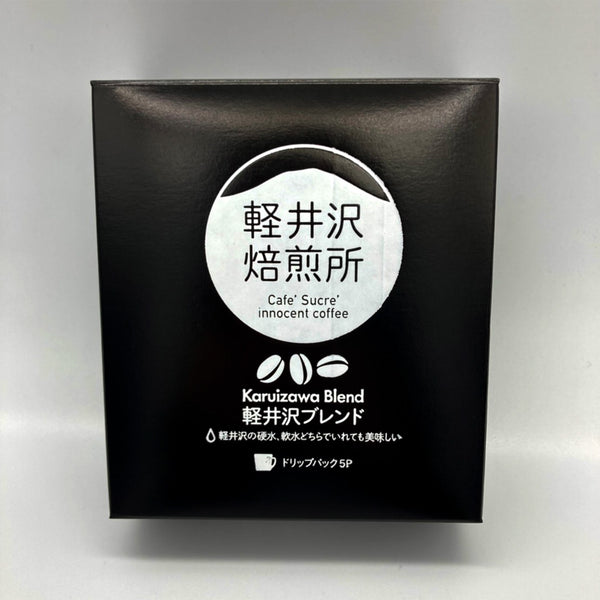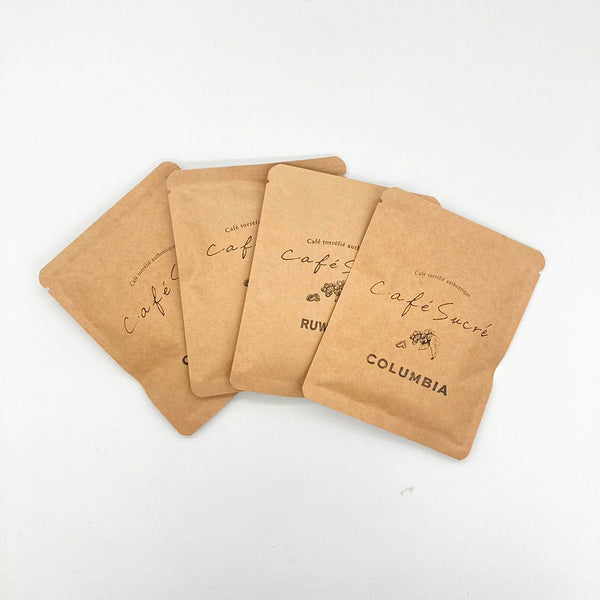JAS Organic Rwanda Mikoff Drip Bag
Even when you're busy, you can enjoy delicious, luxurious coffee without spending a lot of time.
[Karuizawa Roastery Organic]
We want to protect the Earth, people, and coffee through organic farming, fair trade, and small things!
Will we be able to drink the delicious coffee we drink every day forever? Organic farming protects the land and people's health, and fair trade and support protects our livelihoods.
Learning about local life and unseen challenges, what each of us can do is very small, but it is important to face them without giving up. Let's think about what we can do now and deliver delicious coffee and smiles to the future.
It contains information about the support provided and voices from the local community. It is a long article, but please take the time to read it.
[About the farm]
In Rwanda, the land of a thousand hills on the eastern shore of Lake Kivu in central Africa, coffee farmers who continue to live in harmony with nature use organic farming methods. This single grain of coffee represents their great hope for regaining peace and moving forward into the future.
Rwanda is a country located in central East Africa, slightly south of the equator. It is divided into a series of mountainous areas stretching from volcanic areas in the northwest to the southeast, and most of the country is covered by grasslands and gentle hills, giving it the nickname "the land of a thousand hills."
Due to its high altitude, the climate is temperate despite being close to the equator, and as a result, most of the country's land is used for farming, supporting the people's lives.
【taste】
From the roaster : These beans have a juicy fruity flavor and clean acidity, with a sweet impression as well as an acidic one, so we roasted them with a medium-dark roast to give them a moderate body.
Flavors and Characteristics : Passion fruit, lychee, milk chocolate, nuts
Roast level : City roast





[Quantity capacity]
10g x 3pcs
[About support]
The fields of MICOF, a coffee producers' organization in the Chingwa region of southwestern Rwanda, are located at an altitude of over 1,300m, and their fertile soil and warm climate make them the perfect environment for growing high-quality coffee.
In addition to the volume of production, the quality of coffee is renowned worldwide, and coffee is Rwanda's main export agricultural product, consumed by people all over the world. When we first visited Rwanda with coffee producers in 2010, the country was devastated by ethnic conflict at the time, and construction of a water facility was begun as Rwanda's first fair trade initiative, in order to rebuild the country through coffee.
In 2012, we carried out an expansion and renovation of Gaboza Primary School in the Chingwa district, and in 2016 we built a home economics classroom at the same school to foster skills that will be useful in daily life, with the aim of establishing sewing, nutrition, and cooking education as basic subjects in the primary education curriculum.
[About the importing organization]
Zensho Fair Trade Department here
[Local Opinions]
Coffee of peace that overcomes ethnic conflict <br>The trigger for starting the Rwanda Coffee Fair Trade Project was when a member of the Fair Trade team learned about the tragedy of Rwanda on a television program. In 1994, a genocide occurred in which a minority group was killed by a majority group, resulting in the deaths of as many as 1 million people. In the program, Pierre Munyura, the president of a coffee exporting company who lost his family, joined hands with both ethnic groups to set up a coffee producers' association in his hometown of Chingwa village. As a survivor who endured tears and hatred that could not be wiped away, Pierre's efforts to create "one Rwanda" through coffee moved us and we were inspired by his efforts. Rwanda is known to those in the know as a suitable place for coffee production. Good sunlight and fertile soil allow coffee trees to grow, and the difference in temperature between day and night enhances the good acidity and sugar content of the coffee cherries. Rwanda coffee, with its many hills over 1,000 meters above sea level (Mille Collines), produces high-quality coffee beans that are comparable to those of Blue Mountain or Kilimanjaro coffee. Spicy citrus aroma, acidity, and rich flavor. These are the characteristics of Rwanda coffee. In order to overcome this sad event, we at Zensho Fairtrade have been supporting coffee producers through fair trade activities for 12 years since 2011 , together with Pierre, who started growing coffee together with everyone, regardless of their ethnicity. In fair trade initiatives, coffee producers and buyers talk to each other, trade at an acceptable price, and the buyers pay the coffee price, plus money to be used for activities to improve the lives of the producers. Rwanda's coffee-producing areas originally had no running water, and children had to carry large tanks to distant rivers to fetch water. Children who help their families fetch water could not attend school.
So in 2012 , Zensho used fair trade funds to build a water supply and an elementary school building. The children were overjoyed that they could now go to school, as they no longer had to help with fetching water. The people of Rwanda remember and pray for those who died during the memorial period around April 7 every year, so that such a tragic event will never be repeated. This year, we are delivering a thousand paper cranes folded by those who sympathize with us at that time. I will never forget the words of Pierre Munyura when I first visited the area. "In our fair trade coffee initiative with Zensho, we ask that you fold one paper crane each year, mourning the deceased and praying for peace, which will lead to world peace in the future. When I believe this, I feel grateful that the feelings of my deceased relatives are being rewarded." We will continue our efforts, hoping for continued peace with your thoughts.
From Mr. Ikeda of Zensho Fair Trade Department
[Fair trade support]
By purchasing these beans, you are supporting this cause. In recent years, the effects of climate change have led to poor growth and widespread disease in coffee, forcing many producers to replant their coffee trees with unfamiliar varieties. As a result, as part of our fair trade efforts, we support the expansion of production of varieties that producers are passionate about, and use the proceeds to help producers achieve a stable and sustainable life.
[About Fair Trade]
The dictionary definition of Fair Trade is fair trade.
・A new form of international cooperation that supports the self-reliance and environmental conservation of developing countries by purchasing goods at prices that guarantee fair wages and working conditions to producers in developing countries. (Daijisen)
・A movement to trade traditional handicrafts and agricultural products at fair prices and to support the economic and social independence of people in developing countries who are unfairly exploited by corporations, landlords, etc. (Britannica)
- Initiatives such as Mypedia to continuously import and consume agricultural products and miscellaneous goods from developing countries at fair prices.
* This is not a FLO product. Please feel free to contact us regarding this.
[About JAS Organic]
In 2020, we obtained JAS organic production process manager and organic product packaging company certification. Our organic coffee is certified by JAS organic at every stage of the coffee farming process, and is managed under a consistent system. By not using pesticides, we are not only safe, but also sustainable for the farms and people, and are an important initiative that leads to the SDGs.
[Coffee Crane Project]
This cup of coffee brings a smile to the farm . This organic coffee is not only traded under FairTrade, but it also supports the farms and the people who work there. The delicious coffee we drink every day is made possible by the efforts of the people on the farm. This is an initiative where our smiles bring smiles to the people on the farm.
Let's spread the circle of smiles together.



